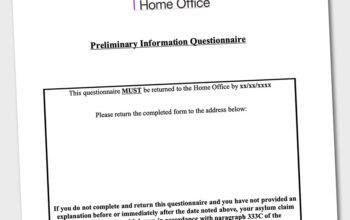By Mark Glinwood ![]() @GlinwoodMark
@GlinwoodMark

Our experience over the years has taught us that Governance is a function that is interpreted in different ways. Often that difference of interpretation is linked to the notion of power and control, role ambiguity, and organisational or sector culture – making the governance process overly complicated.
This cocktail of underlying factors inevitably leads to a ‘chipping away’ of the simplicity of purpose which the governance apparatus is designed to fulfill. Ironically, the current set of social challenges provides fertile ground on which to ‘reboot’ and reclaim the value of governance; whilst at the same time demystifying the language that has grown up around its practice.
Governance a new paradigm?
In March, this year Governance forums up and down the country faced an unprecedented and immediate need to evolve a new paradigm within which their Governance would work. Undoubtedly and understandably mistakes will have been made along the way. Reflection on these mistakes, and the examination of old practices, will hopefully follow and provide the opportunity to re-frame the way in which we govern, and the value that we can expect to result from a refreshed governance approach.
Pandemic the ultimate disruptor
The events of recent weeks represent a disruption beyond anything most of us could have imagined. These have had a sobering human cost. But in business terms dare we hope for some value in the disruption at this early stage of the pandemic? The power of analogy helps magnify the absurdity of what had become the norm, even though the fault lines of ineffectiveness were there to be found if only we had scratched below the surface. And disruption can become useful in facilitating change.
What has flying got to do with good Governance?
Using an Airline analogy may not be off the mark therefore when we seek to get back to the basics of governance. In any airline the pilot and crew are in full command of the plane throughout the flight and are required to take decisions as required to deliver their Mission. In this instance that Mission is to reach the designated destination safely, on time and in the most fuel-efficient way possible. It is their responsibility, and theirs alone. The policies, standards and culture of the airline are ‘governed’ by an oversight body that sets the destination and tone of the organisation and establishes a framework through which long term success can be achieved, whilst managing overall risk. Whilst the pilot may contribute to the shaping of that long-term approach, the accountability for delivery is clearly not theirs. Equally, no one would seriously suggest that a pilot should be instructed ‘in flight’ by those controlling policy and strategy.
The above is designed to provide a cameo illustration of Executive and Board accountabilities and boundaries. The translation of this principle is no different in any organisational setting. Mission-lead leadership is not just a managerial buzz term, as the examination of what sits behind this basic philosophy reveals clues that start to flush out where the governance and operational lines should be drawn. It is equally important to identify where these lines legitimately converge to add checks and balances, to protect values, and to maximise long term sustainability and stakeholder confidence.
Real time learning in a fast-moving environment
In recent weeks we have been discussing these issues with Chairs, NED’s and Executives to learn from their experiences in these unprecedented times. There has been an uncanny commonality of learning points despite organisational and sectorial differences, and we have drawn these together as initial points of learning, which we hope will resonate with some and challenge others.
- Boards need to curb and channel enthusiasm
- Do not overwhelm top teams with requests to help – recognise that ‘It’s not helpful to have too many helpful people being helpful’.
- Step up do not overstep
- Trust and support with sophisticated oversight
- Do not lose sight of the long term and mission critical plans
- Embed a mindset of sustainability as an anchor point to measure good governance
- Build resilience
- Do not operate on guess work
- Continue to look for opportunities
- Do not neglect values, culture and leadership
- Judge the mood and think before you act
Whilst these have emerged over the last few weeks and are driven by the current crisis, in truth they seem to us to be characteristics of good governance, full stop. They clearly do not represent the whole picture, but they make a significant contribution to it. So, when was the last time you and your fellow Board colleagues had a meaningful discussion around any of the above points?
Governance – sustainability through unprecedented times
For the first time for most of us, the mantra that these are unprecedented times is a true statement as opposed to a platitude. If Governance cannot preserve business through unprecedented times, then its worth must truly be open to question.
Join the debate below in the comments, on twitter via @SH_Matters or of course write your own response article!
About the author
Mark Glinwood is Director at Distinctive People HR & OD Ltd Is a high-end specialist consultancy driven by helping organisations to prosper through People – socially, financially and intellectually. We work with businesses to prepare, shape and transform their service offer. Follow us on Twitter @distinctivepeop and visit our website at www.distinctivepeople.co.uk



